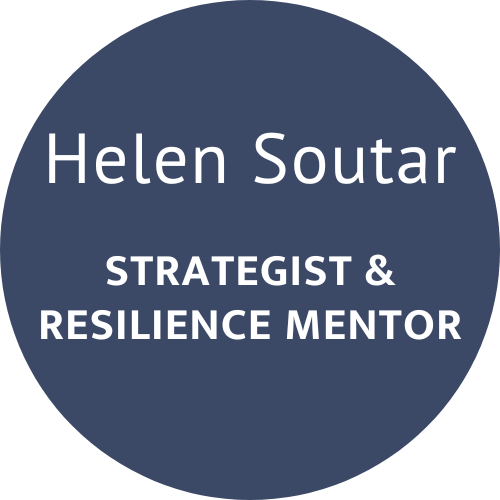Resilience 101: What It Is and Why You Need It Now
Life is full of challenges, and sometimes it feels like you’re just barely holding it all together. The demands of work, family, and personal goals can leave you feeling overwhelmed and stretched too thin. That’s where resilience comes in.
What Is Resilience?
Resilience is your ability to bounce back from setbacks, adapt to change, and keep moving forward, even when things get tough. It’s not about avoiding stress or pretending everything is fine—it’s about developing the skills and mindset to handle challenges effectively.
Resilience looks like:
- Taking Care of Yourself (Filling Your Well): Prioritizing rest, recovery, and what keeps you energized.
- Clarifying Your Goals (Strategic Self-Care): Identifying what truly matters so you can focus your efforts.
- Dealing with Your Limiting Beliefs: Challenging those thoughts, judgments and beliefs that tell you you’re not good enough, or an imposter, or a fraud.
- Communicating Clearly and Intentionally: Being able to share your feelings and needs, tackle challenging conversations, and get the outcomes you want in negotiations.
- Setting Boundaries: Saying no to distractions or demands that don’t align with your priorities.
The 5 key skills of resilience
These are the 5 key skills that form the foundation of resilience. Each skill builds on the previous one to create a strong, interconnected system of support. Each skill, or pillar, builds on the previous one to strengthen your overall resilience. The diagram below illustrates how these elements work together:

Want to dive deeper? Learn more about the Resilience Framework here.
Why Resilience Matters
Without resilience, life’s challenges can feel overwhelming. You might find yourself:
- Burning Out: Constantly running on empty and feeling exhausted.
- Avoiding Problems: Ignoring issues because they seem too difficult to face.
- Feeling Stuck: Struggling to make progress because fear or frustration is holding you back.
Building resilience changes the way you approach challenges. Instead of feeling defeated, you gain the confidence to tackle problems head-on.
Now that we’ve explored why resilience is essential, let’s look at how you can start building it today.
How to Build Resilience
Resilience isn’t built overnight, but small changes can make a big difference. Here are three ways to start:
- Practice Self-Compassion: When things go wrong, ask yourself: “What would I say to a friend in this situation?” Write it down and say it to yourself. Remind yourself that everyone makes mistakes, and setbacks are opportunities to learn, not proof of failure.
- Set Clear Boundaries: Identify one area where you feel overcommitted. Practice saying no in a polite but firm way, such as: “I can’t take that on right now.” Remind yourself that every time you say no to something that drains you, you’re saying yes to something that matters more.
- Take Care of Your Body: Start with one small, consistent habit. For example, set a bedtime reminder to improve your sleep or add a short walk to your day to clear your mind. Focus on what makes you feel energized and refreshed rather than setting unrealistic health goals.
Resilience in Action
When you work on strengthening the five key resilience skills, you’ll notice that your problem-solving and decision-making improve naturally. These skills create the foundation for tackling challenges with clarity and confidence.
When you build resilience, you’ll notice:
- Less Overwhelm: Clear priorities make it easier to focus on what matters and let go of unnecessary tasks.
- Improved Relationships: Saying no respectfully and managing your emotions builds trust and reduces resentment.
- Increased Confidence: Each small win—like managing stress or recovering from setbacks—reinforces your ability to handle future challenges.
Resilience isn’t about eliminating challenges—it’s about equipping yourself to face them. If you’re ready to start building your resilience, take this quiz to identify your strongest skills and the areas where you can grow.


I could really relate to this and I know that building resilience will help me move forward like it’s helped me before. I’ll be in touch soon!